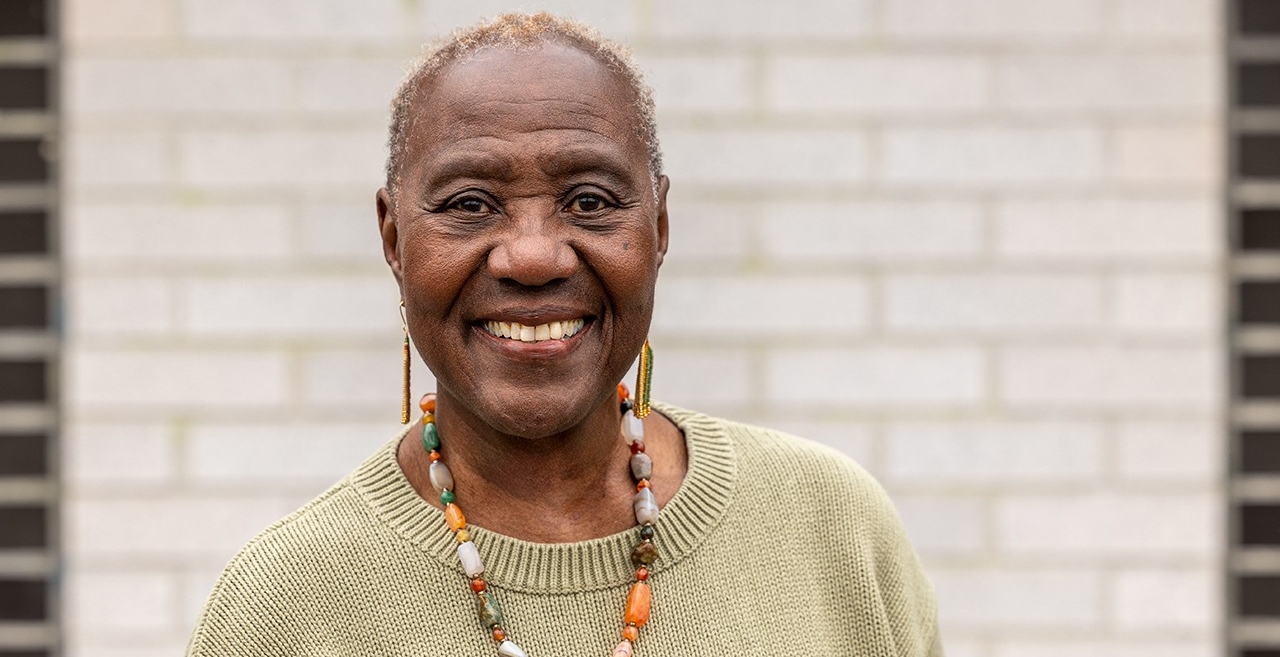Great Concordian: Myrna Lashley, distinguished academic and advocate
 Credit: Julian Haber
Credit: Julian Haber
Update: Myrna Lashley was appointed to the Order of Canada on June 27, 2024.
Myrna Lashley, BA 84, has spent a good part of her lifetime pursuing groundbreaking work at the intersection of mental-health research and social justice.
A professor at McGill University’s Department of Psychiatry, and a researcher at the Culture and Mental Health Research Unit of the Lady Davis Institute, her expertise is widely recognized.
A vocal proponent for culturally appropriate care for marginalized communities within the federal correctional system, Lashley has served as chair of the Government of Canada’s Cross Cultural Roundtable on Security — created to engage citizens on matters related to national security and public safety — and vice-chair of the board of the École Nationale de Police du Québec.
She regularly consults with Montreal’s municipal police agency on matters ranging from racial profiling to improved mental-health supports for community members as well as officers.
After decades of antiracism advocacy, Lashley still finds herself as the only — and quite often the first — Black person invited to occupy certain roles or spaces, whether in academia or in her capacity as a consultant and expert.
“Even if you have the qualifications and you feel flattered, it’s wearisome to be the first all the time,” she says. “It’s 2024, after all.”
Lashley has garnered numerous honours for her work, including the Friends of Simon Wiesenthal Award for Holocaust Studies in 2006 and the Martin Luther King Legacy Award in 2004. She was named Black History Month spokesperson for Montreal in 2018 and one of CBC’s Black Changemakers in 2021. What’s more, Lashley has served as Honorary Consul of Barbados to Montreal and the province of Quebec for the past decade.
The emerging field of geopolitical psychiatry, which addresses the mental-health impacts of climate change on vulnerable populations, particularly in the Global South, is a current focus for the Concordia alumna. Collaborating with colleagues worldwide, Lashley aims to help establish a centre in her native Barbados that will help address these urgent challenges through academic publications and policy advocacy.
The Great Concordian is also co-authoring a new book, with a lay audience in mind, that will address mental health and racism.
When you reflect on your time as a Concordia student, what stands out?
Myrna Lashley: It was great. I just love Concordia. It was a wonderful time. I made friends who are still my friends and with whom I have lunch every year.
I loved the small class sizes. I enjoyed serving in student government and sitting on the Board of Governors. I liked the things I accomplished to help other students, particularly international students. We worked to ensure they were able to acclimate to a new city and culture, and that the university took culturally sensitive steps to help with that as well.
What are some of the factors that have enabled your success?
ML: As a Black woman and immigrant from Barbados, I received what I would call a classic British-colonial education in my childhood and adolescence. Although much was left out, it was instructive to be taught from that perspective and to see what was excluded. It certainly affected the way I saw the world, and how I wanted certain things to change.
I always loved learning about history and philosophy. Having a good understanding of both helped me develop the critical thinking skills that I think are necessary to do this work.
What advice do you have for students who may want to follow in your footsteps?
ML: You need to be strong. You need to be very forgiving and caring, because it’s not an easy road to travel.
Effective advocacy work must be evidence-based and rooted in empathy. The evidence-based part is critical — I tell my students that we must never forget that, because otherwise you can lose your credibility. And credibility is difficult to earn back. But empathy must guide us forward as well.
How does it feel to be a Great Concordian?
ML: I’m absolutely delighted and so grateful to Concordia. It wasn’t always an easy journey, there were some struggles [when Lashley successfully ran for student government, one of her campaign posters was defaced with a racial slur — an experience documented in the 2022 final report of Concordia’s Task Force on Anti-Black Racism]. So, to now have the university include me in this cohort of 50 is almost mind-boggling.
I’m thrilled because I always thought that I might be seen as a thorn in the side because of how outspoken I was about the need for change. For Concordia to now turn around and say, you know what? You’re okay. That’s wonderful.
Take pride in our Great Concordians!
Fifty standout graduates are receiving this distinction as part of our university’s 50th anniversary. Each recipient has made a significant impact on their field and on society.
One Great Concordian will be revealed, weekly, until September 2025.
Our new cohort of honourees builds on our original 40 Great Concordians.